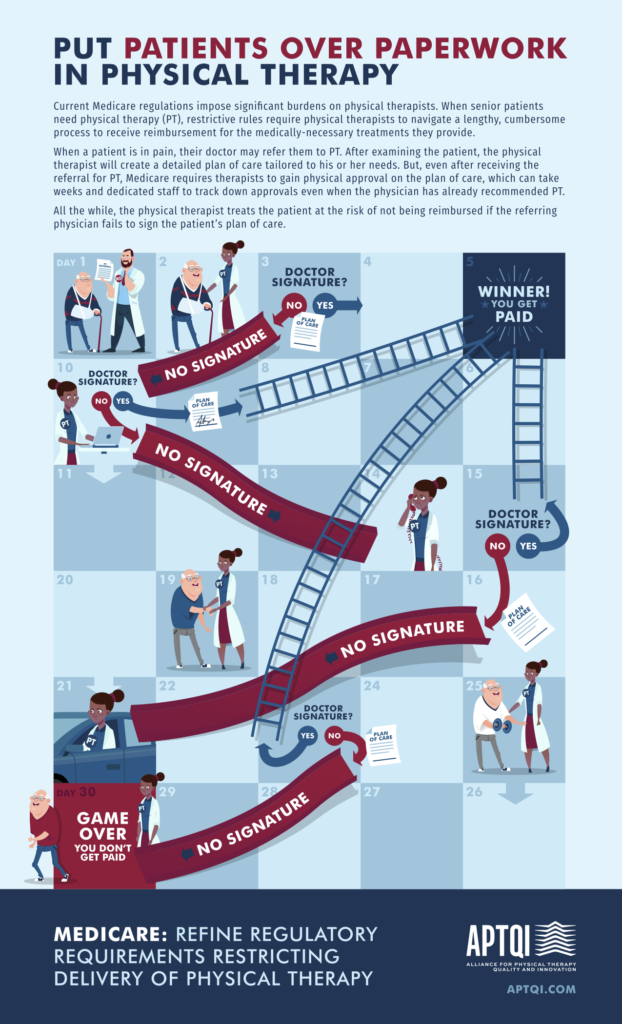Medicare: Don’t Play Games with Patient Access to Physical Therapy
Do you remember playing Chutes and Ladders as a kid?
Just when it seemed like you finally made some progress toward the finish line, you suddenly slipped down a chute and ended up back in the beginning. Nothing was more frustrating!
For many physical therapists, it seems like they are playing this game all over again when they seek reimbursement from Medicare.
When physical therapists treat Medicare beneficiaries, a physician must sign off on the patient’s individual plan of care in order to be paid, even if the patient already has a physician referral. But hunting down that physical physician signature can be a lengthy, cumbersome process for everyone involved.

After developing a care plan for a senior patient, physical therapists must seek physician approval and submitted in a timely manner in order to be paid by Medicare. They call, fax, email, and in some cases, even visit the referring physicians to get their physical sign-off. If the referring physician does not physically sign the plan of care for each patient within 30 days of treatment, then the supporting documentation for each patient’s care is considered late under current Medicare rules. As a result, physical therapists risk not being reimbursed for the professional, high-quality care they have already provided to the patient.
Understandably, many physical therapists and referring physicians are frustrated by the current regulations. Physical therapists and their hardworking staff members devote a disproportionate amount of time ensuring the paperwork for each patient is signed by physicians. More time spent pouring over paperwork equals less time for patients, putting us in a no-win situation.
In light of the Centers for Medicare & Medicaid Services (CMS) Patients Over Paperwork campaign, APTQI supports regulatory reform that makes it easier for physical therapists to get reimbursed for delivering professional services to Medicare beneficiaries.
Medicare should require either a physician referral or a signed plan of care, but not both. With this simple reform, physical therapists will have more time to do what they do best: care for patients.